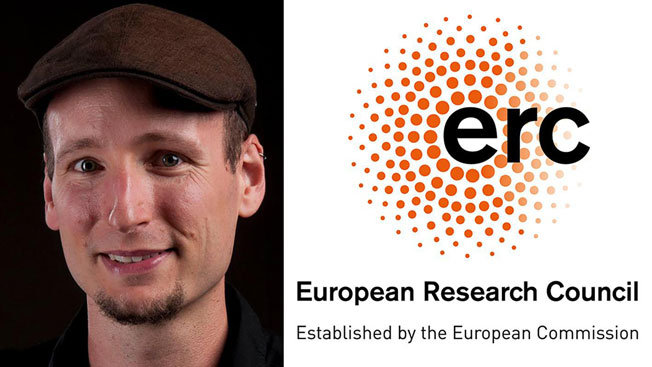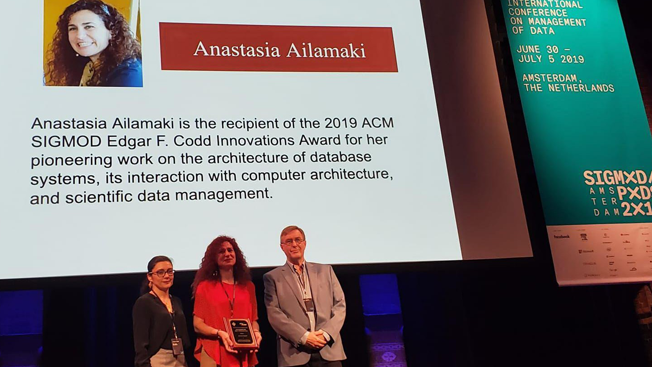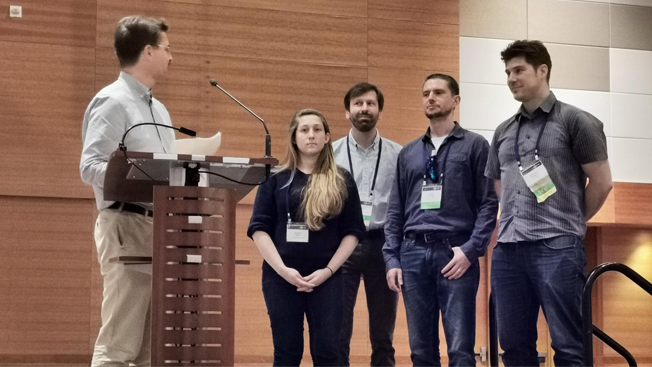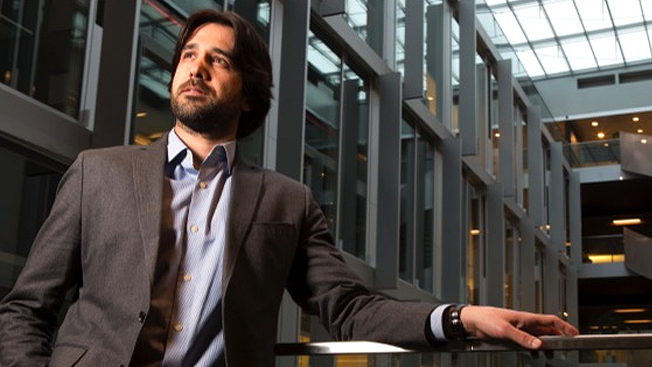An eleven-member jury formed by Swiss business magazine Bilanz has announced the 100 most important heads of Switzerland who are at the forefront of digitization this year. The list of achievers has been sorted into various categories such as investors, blockchainers, scalers, transformers, administrators, drone acrobats, mentors, and data miners. Among the blockchainers is Professor Bryan Ford, who heads the Decentralized and Distributed Systems Lab (DEDIS) at EPFL’s School of Computer and Communication Sciences.
Read MoreNews
ERC Starting Grant for “CodeSan”
The European Research Council (ERC) has awarded a Starting Grant for the open-source research proposal “Code Sanitization for Vulnerability Pruning and Exploitation Mitigation.” The Principal Investigator of the research is Professor Mathias Payer, IC tenure-track assistant professor and head of the HexHive lab on software systems security at EPFL.
Read MoreNew EPFL Research Brings Paradigm Shift in Cryptocurrency
After extensive research, Professor Rachid Guerraoui and colleagues at EPFL’s School of Computer and Communication Sciences (IC) have proposed a nearly zero-energy alternative to the bitcoin. The system, dubbed Byzantine Reliable Broadcast, represents a paradigm shift in the approach toward cryptocurrencies.
Read MoreMedia Observatory: EPFL Initiative to Detect News Disinformation
Today, we have a slew of media houses and streaming services that inundate consumers with audio, video, online, and print news. This has raised the specter of rampant news misinformation and disinformation. The threat is amplified by broadcasters who use the same source to disseminate news to consumers. Any bias in the original news source is perpetrated by all secondary services, thus delivering a limited view of news to consumers. However, researchers at EPFL’s Distributed Information Systems Laboratory (LSIR) in the School of Computer and Communication Sciences have developed an algorithm that can detect such biases and external influences in the news industry.
Read MoreAnastasia Ailamaki Wins Highest Honor in Database Management
Anastasia Ailamaki, professor of Computer and Communication Sciences at EPFL and co-founder of RAW Labs SA, has been honored with the SIGMOD E.F. Codd Innovation Award. The award recognizes her “pioneering work on the architecture of database systems, its interaction with computer architecture, and scientific data management.” She joins a distinguished group of past awardees, all of whom are influential scientists in the field of database management.
Read MoreEPFL in Global Consortium for Distributed Randomness
The good old roll of the dice is the archetype of randomness. And then there are lottery drawings and competitions where the outcome depends on generating random numbers. However, verifiable randomness, or the lack of predictability, continues to be a deep-rooted problem in cryptography. The newly constituted League of Entropy, with EPFL as a founding member, has decided to tackle the problem head on.
Read MoreScala Receives SIGPLAN Programming Languages Software Award 2019
EPFL’s home-grown programming language Scala has won this year’s Programming Languages Software Award. The honor is awarded by ACM SIGPLAN each year to an individual or an institution to recognize the development of a software system that has had a significant impact on programming language research, implementations, and tools. Scala was originally developed by Professor Martin Odersky in 2004 at the School of Computer and Communication Sciences (IC). Professor Odersky now heads the Scala Center, an open-source foundation for the software based at EPFL.
Read MoreEcoCloud Research Wins Runner-up Paper Award at SpringSim’19
The 2019 Spring Simulation Conference (SpringSim’19) concluded on May 2 at Tucson, Arizona. During the four-day event, many original papers were presented on the theory and practice of modeling and simulation in the scientific and engineering fields. The conference was especially significant for EPFL and EcoCloud because a paper co-authored by PhD scholar Yasir Mahmood Qureshi was selected for the Runner-up Paper Award.
Read MoreVulnerabilities in Machine Learning
Media coverage on the distant future of AI and machine learning have painted a scary picture of machines going berserk, rampaging killer robots, and rogue self-driving cars. Those ugly manifestations of machine learning are unlikely to go beyond fiction. But the dangers of machine learning can—and already have—taken different routes. A couple of podcasts featuring El Mahdi El Mhamdi, PhD scholar at EPFL, shed important light on the dark side of AI—poisoned data sets, bad actors, AI-generated fake news, and the Byzantine problem—and his work on technical AI safety and robustness in biological systems.
Read MoreElison Matioli Joins EcoCloud
Elison Matioli, assistant professor at EPFL’s Institute of Electrical Engineering and director of the POWERlab, has joined EcoCloud.
Read More








